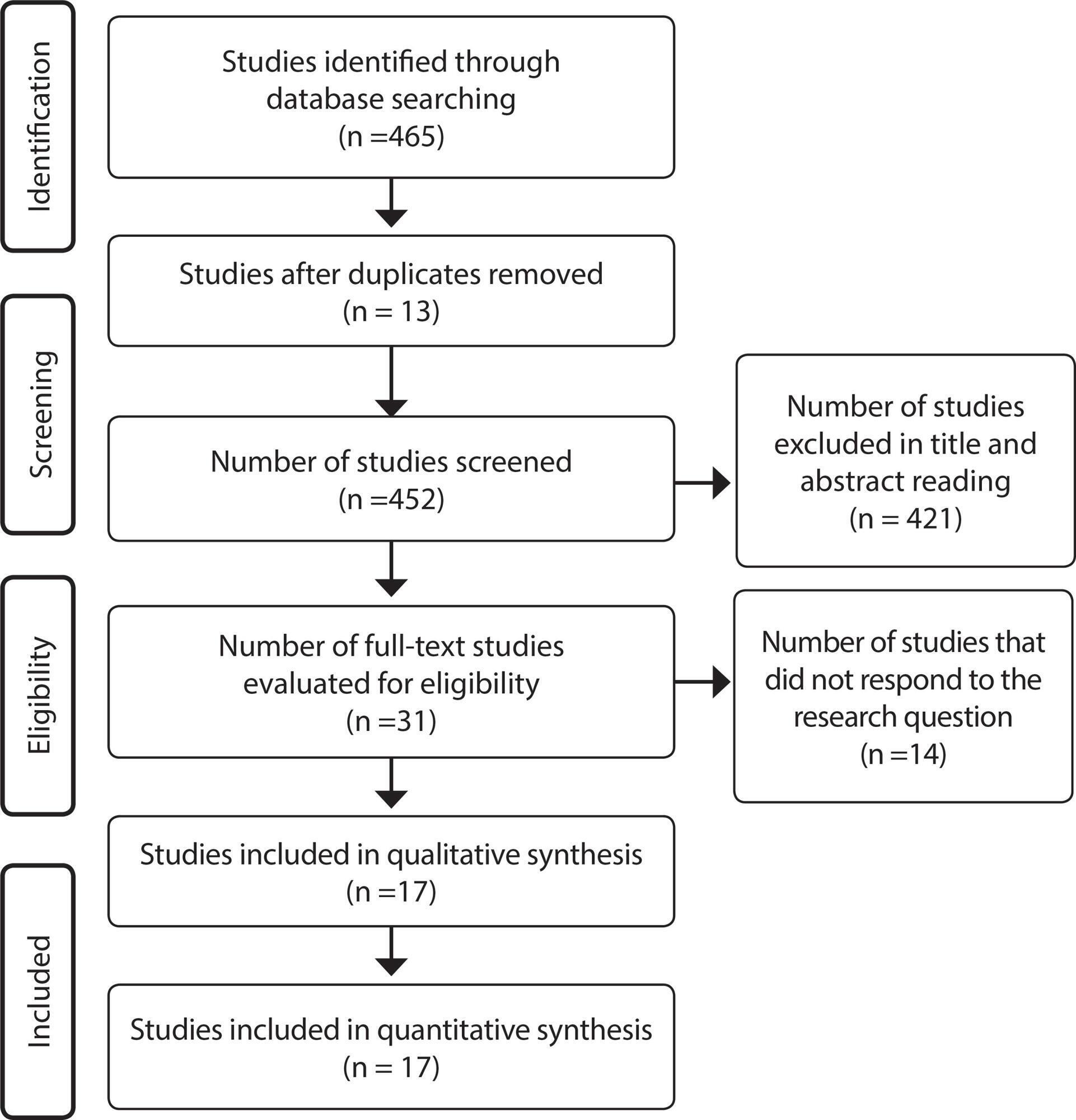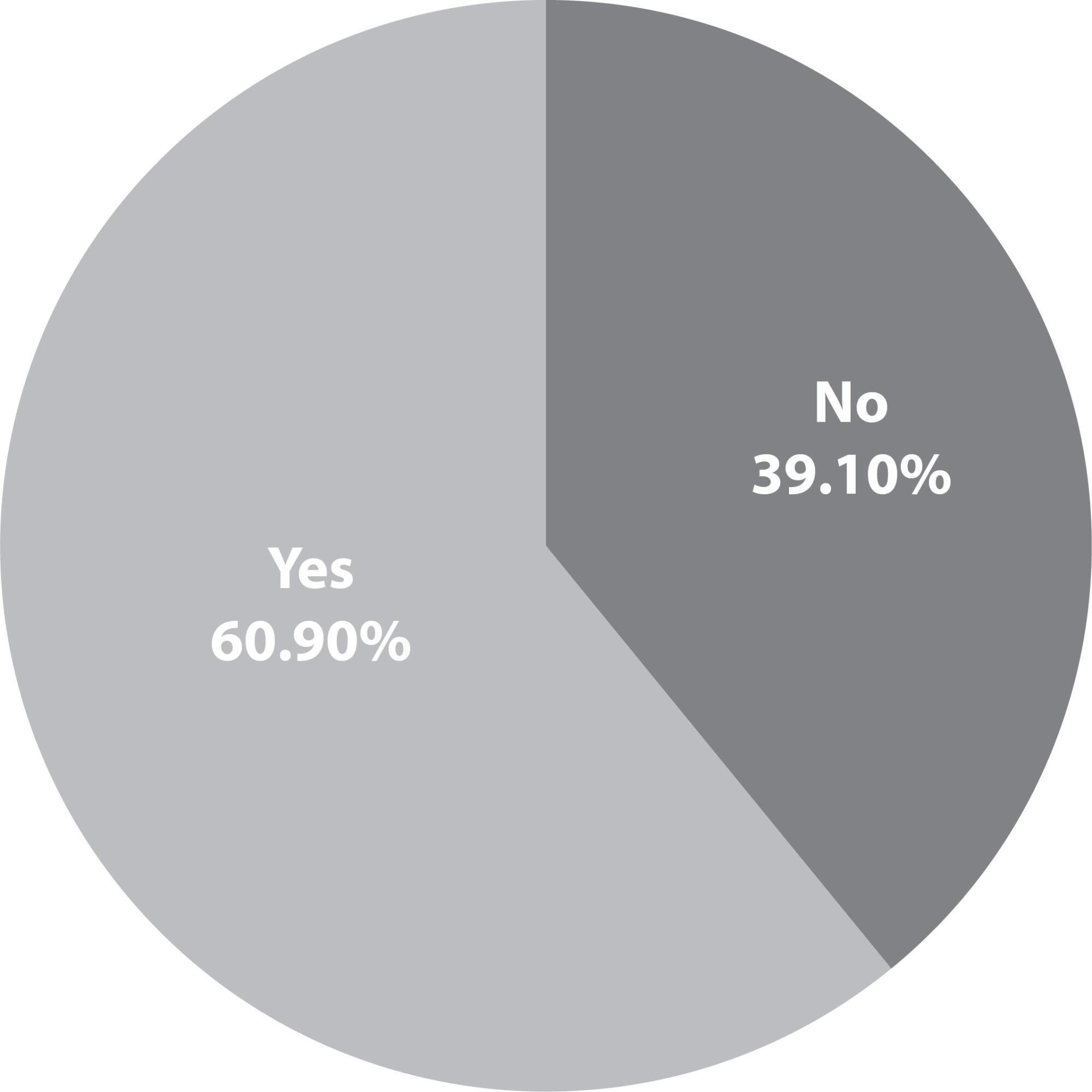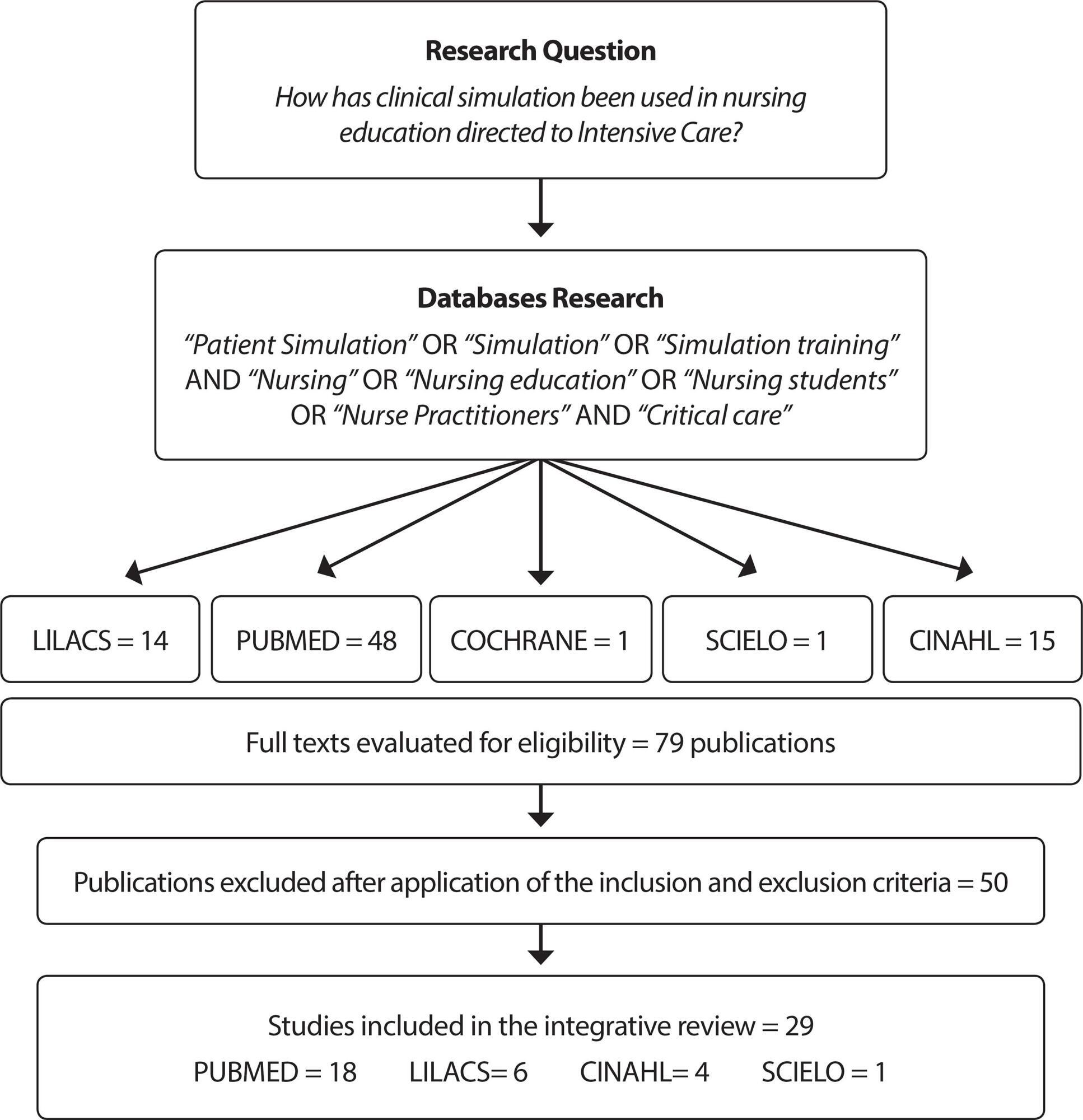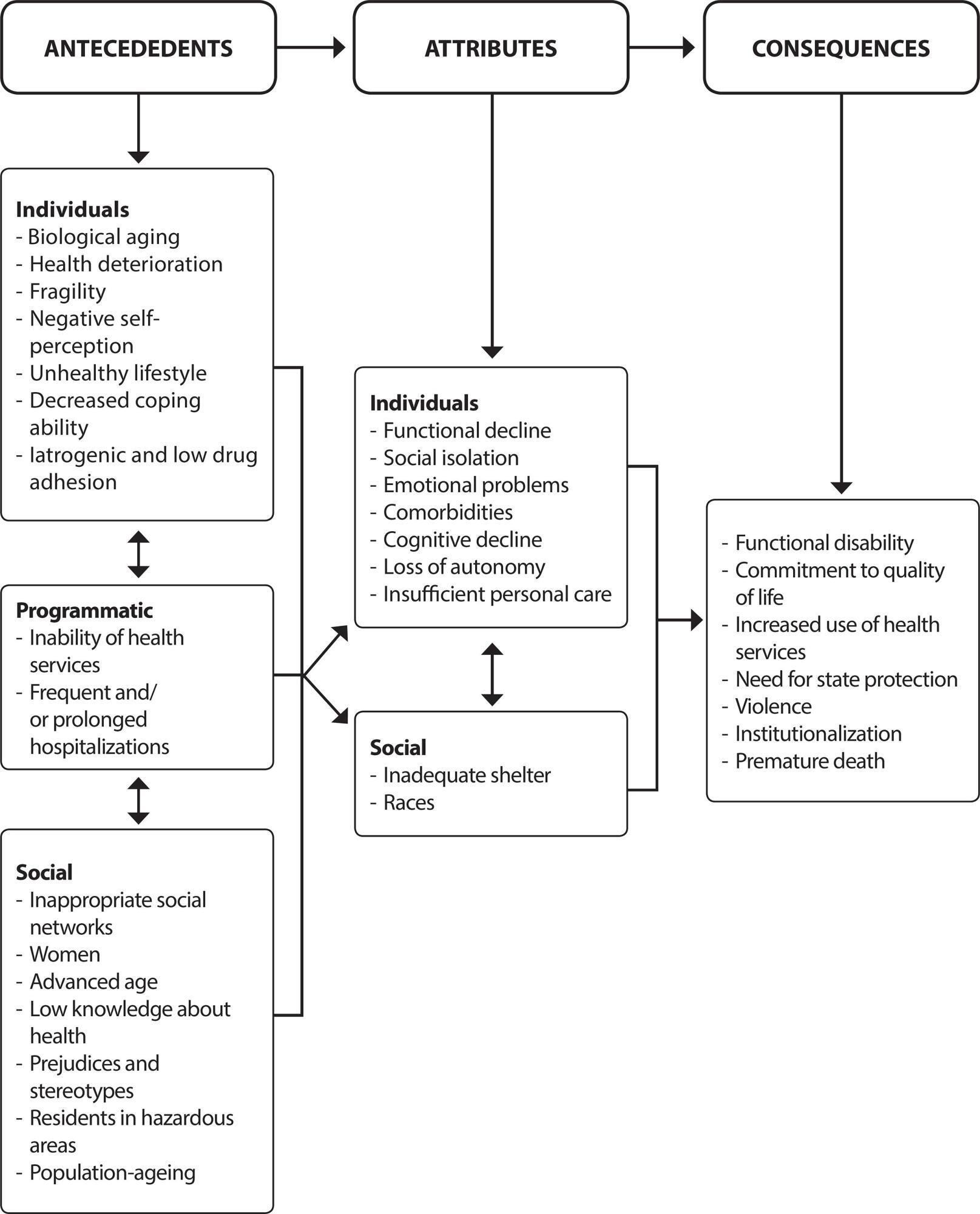-
EDITORIAL
Discoveries of Biological Sciences and their implications for nursing practice
Revista Brasileira de Enfermagem. 2016;69(4):619-620
01-01-2016
Abstract
EDITORIALDiscoveries of Biological Sciences and their implications for nursing practice
Revista Brasileira de Enfermagem. 2016;69(4):619-620
01-01-2016DOI 10.1590/0034-7167.2016690401i
Views0For the longest time, the production of knowledge in the field of biological sciences was viewed as the exclusive responsibility and competence of medical professionals. This scenario has changed in light of the worldwide trend of improvements in other health professions, which includes the need to implement the use of evidence-based methodology in nursing practice. […]See more -
REVIEW
Effects from acupuncture in treating anxiety: integrative review
Revista Brasileira de Enfermagem. 2016;69(3):602-609
01-01-2016
Abstract
REVIEWEffects from acupuncture in treating anxiety: integrative review
Revista Brasileira de Enfermagem. 2016;69(3):602-609
01-01-2016DOI 10.1590/0034-7167.2016690325i
Views0See moreABSTRACT
Objective:
to evaluate the scientific evidence that is available in the literature on the effects of acupuncture for treating anxiety and on the quality of such studies.
Method:
the study is an integrative review of CINAHL, LILACS, PUBMED-PICO, SciELO, and The Cochrane Library between 2001 and 2014. Keywords anxiety, acupuncture therapy, acupuncture, and anxiety disorders were combined among themselves to ensure a wide search of primary studies.
Results:
among 514 articles, 67 were selected to be fully read and 19 were included. Among these, 11 were found to have strong evidence levels. Among the six articles about randomized clinical studies, five were found to be of reasonable quality. Two studies used acupuncturist nurses to perform their interventions. Its results showed positive and statistically significant effects from using acupuncture for treating subjects with anxiety.
Conclusion:
acupuncture seems to be a promising treatment for anxiety; however, there is a need for improving the methodological quality of the research on this field.
-
REVIEW
Palliative care and spirituality: an integrative literature review
Revista Brasileira de Enfermagem. 2016;69(3):591-601
01-01-2016
Abstract
REVIEWPalliative care and spirituality: an integrative literature review
Revista Brasileira de Enfermagem. 2016;69(3):591-601
01-01-2016DOI 10.1590/0034-7167.2016690324i
Views0See moreABSTRACT
Objective:
to analyze scientifi c articles published in international online journals about palliative care and spirituality.
Methods:
an integrative literature review with data collected in September 2014 from the LILACS, SCIELO, MEDLINE/PubMed, and IBECS databases.
Results:
thirty-nine publications were identifi ed and their textual analysis facilitated through four thematic approaches: the meaning of spirituality in the context of palliative care; palliative care and spiritual support; spirituality and relief of pain and other symptoms in patients under palliative care; and instruments to evaluate the spiritual dimension of the scope of palliative care.
Conclusion:
this study examined the relevance of the spiritual dimension in the care of patients with palliative care and the need for developing new studies to disseminate knowledge about this topic.
Descriptors:
Palliative Care; Palliative Care at End of Live; Spirituality; Religion; Health.
-
REVIEW
Educational technologies to encourage (self) care in postpartum women
Revista Brasileira de Enfermagem. 2016;69(3):582-590
01-01-2016
Abstract
REVIEWEducational technologies to encourage (self) care in postpartum women
Revista Brasileira de Enfermagem. 2016;69(3):582-590
01-01-2016DOI 10.1590/0034-7167.2016690323i
Views0See moreABSTRACT
Objective:
to evaluate national and international literature regarding the use of educational technologies to encourage self care in postpartum women.
Method:
an integrative review of the literature. The articles were collected from the CINAHL, SCOPUS, PubMed, SciELO, LILACS and Cochrane databases; the time period for the articles referred to January/2004 to July/2014; the languages used in the articles were Portuguese, English, Spanish and French; the articles were selected from the following descriptors: postpartum care period, educational technology, nursing and self care. Twenty-seven articles were selected for analysis
Results:
based on the information found, the scales, counseling and home visits were among the most recommended educational technologies.
Conclusion:
the technologies promote communication, but are sometimes dependent on computer and internet access, which hinder their use by low-income women.

-
RESEARCH
Patients with HIV/Aids and ulcer risk: nursing care demands
Revista Brasileira de Enfermagem. 2016;69(3):574-581
01-01-2016
Abstract
RESEARCHPatients with HIV/Aids and ulcer risk: nursing care demands
Revista Brasileira de Enfermagem. 2016;69(3):574-581
01-01-2016DOI 10.1590/0034-7167.2016690322i
Views0See moreABSTRACT
Objective:
to analyze the demand for nursing care and the risk of pressure ulcers (PU) of patients with HIV/Aids.
Method:
quantitative survey, carried out from December 2012 to March 2013 in a public hospital of Teresina, state of Piauí, Brazil.
Results:
the sample of 31 patients was predominantly male, mean age 36.6 years, average care demand 49.4%, most showing some risk of developing PU. The variables correlated with PU risk were care demand and clinical outcome (death). Those associated with care demand were age and clinical outcome (death).
Conclusion:
the results showed that patients require moderate nursing care needs and most of them present risk of developing PU.

-
RESEARCH
The experience of grandmothers of children with cancer
Revista Brasileira de Enfermagem. 2016;69(3):559-565
01-01-2016
Abstract
RESEARCHThe experience of grandmothers of children with cancer
Revista Brasileira de Enfermagem. 2016;69(3):559-565
01-01-2016DOI 10.1590/0034-7167.2016690320i
Views0See moreABSTRACT
Objective:
to understand, from grandmothers’ perspectives, the experience of having a grandchild with cancer.
Method:
qualitative study, guided by philosophical hermeneutics. Eight grandmothers of children who had finished an oncology treatment participated in this study. Data were collected through interviews, which were recorded, transcribed, and analyzed according to the principles of hermeneutics.
Results:
the grandmothers underwent an experience of multiplied, silent, transformative, and permanent suffering. They believe it is their role to be present, but they recognize their adult children’s independence and self-determination. Grandmothers highlighted that their experience has been very little accessed and considered by health care professionals.
Conclusion:
we recommend including grandparents in the context of care and in additional research.
-
Humor intervention in the nurse-patient interaction
Revista Brasileira de Enfermagem. 2019;72(4):1078-1085
08-19-2019
Abstract
Humor intervention in the nurse-patient interaction
Revista Brasileira de Enfermagem. 2019;72(4):1078-1085
08-19-2019DOI 10.1590/0034-7167-2018-0609
Views0ABSTRACT
Objective:
To describe the factors influencing the use of humor in nursing care, its applicability and benefits.
Method:
A scoping review was performed using the Arksey and O’Mally methodology. A search for articles published between 2008 and 2018 was performed using the platforms EBSCO Host, Virtual Health Library and Google Scholar.
Results:
From the initial 465 articles found, 17 were included for final revision. Data allowed to retrieve information on humor definition; its applicability as a nursing intervention; humor as a tool to improve nurse-patient communication and relationship; influence factors; type of humor interventions; humor benefits in health care context and; limitations and precautions of humor intervention.
Conclusion:
The use of humor promotes both communication and human interaction; it promotes well-being; helps deal/cope with difficult and unpleasant situations, reduces tension, discomfort and stress; and strengthens the immune system. This intervention should be used with caution.
Keywords:CommunicationNurse-Patient RelationsNursingPatient Outcome AssessmentWit and Humor as SubjectSee more
-
ORIGINAL ARTICLE
Workloads and burnout of nursing workers
Revista Brasileira de Enfermagem. 2019;72(6):1435-1441
10-21-2019
Abstract
ORIGINAL ARTICLEWorkloads and burnout of nursing workers
Revista Brasileira de Enfermagem. 2019;72(6):1435-1441
10-21-2019DOI 10.1590/0034-7167-2017-0659
Views0See moreABSTRACT
Objective:
to identify workloads in nursing work and its association with nursing worker burnout.
Method:
a cross-sectional study, including 211 nursing workers from a university hospital, between July and August 2016. For the analysis, the descriptive statistics, Chi-Square Test, Fisher’s Exact Test and Mann Whitney U-Test were used.
Results:
the most evidenced loads were biological. A significant association was found between workloads and workers’ occupation, as well as a significant association between workloads and worker burnout. Burnout caused upper limb pain, neck and lumbar pain, lower limb pain, muscle spasm, lower limb edema, mental fatigue, headache, nervousness, and forgetfulness.
Conclusion:
workloads identification is a subsidy for the promotion of interventions that minimize the burnout generated to the health of the nursing worker.
-
ORIGINAL ARTICLE
Nursing care systematization: perceptions and knowledge of the Brazilian nursing
Revista Brasileira de Enfermagem. 2019;72(6):1547-1553
10-21-2019
Abstract
ORIGINAL ARTICLENursing care systematization: perceptions and knowledge of the Brazilian nursing
Revista Brasileira de Enfermagem. 2019;72(6):1547-1553
10-21-2019DOI 10.1590/0034-7167-2018-0606
Views0See moreABSTRACT
Objective:
to present the perception and knowledge of Brazilian nursing nurses and academics regarding Nursing Care Systematization.
Method:
a descriptive study, carried out in the first half of 2018.
Results:
of the 596 respondents, 86% perceived Nursing Care Systematization as very important, but only 60.9% used it in their care practice. Its use was statistically associated with a higher level of training. Non-utilization was associated with the perception that it is irrelevant and with little knowledge on the Nursing Process, even in the face of recognition of its obligation. Among professionals who wish to learn more about the subject, understanding the application of the process, especially the planning step, is perceived as a necessity.
Conclusion:
the relevance perception of systematization and levels of knowledge of the professional/academic are directly related to the use or not of Nursing Care Systematization principles.

-
Burnout Syndrome and Associated Factors in Intensive Care Unit Nurses
Revista Brasileira de Enfermagem. 2021;74:e20190535
01-20-2021
Abstract
Burnout Syndrome and Associated Factors in Intensive Care Unit Nurses
Revista Brasileira de Enfermagem. 2021;74:e20190535
01-20-2021DOI 10.1590/0034-7167-2019-0535
Views0See moreABSTRACT
Objective:
to estimate prevalence and factors associated with Burnout Syndrome in intensive care nurses in a city in the state of Bahia.
Methods:
a cross-sectional, population-based study carried out with 65 intensive care nurses through a self-administered questionnaire, from July to November 2016, containing sociodemographic data, lifestyle, work characteristics. To define burnout syndrome, the Maslach Burnout Inventory was used.
Results:
Burnout Syndrome prevalence was 53.6%, an association was observed with age, tobacco consumption, alcohol use, weekly night shift hours, employment relationship, having an intensive care specialist title, number of patients on duty, monthly income and considering active or high-strain job.
Conclusion:
the results of this study can contribute to expanding the discussion on stressful working conditions in Intensive Care Units.
-
ORIGINAL ARTICLE
Elderly caregivers of the elderly: frailty, loneliness and depressive symptoms
Revista Brasileira de Enfermagem. 2019;72:88-96
12-05-2019
Abstract
ORIGINAL ARTICLEElderly caregivers of the elderly: frailty, loneliness and depressive symptoms
Revista Brasileira de Enfermagem. 2019;72:88-96
12-05-2019DOI 10.1590/0034-7167-2018-0137
Views0See moreABSTRACT
Objective:
to investigate the association between frailty, loneliness and depressive symptoms of elderly caregivers.
Method:
a cross – sectional study carried out with 341 elderly caregivers enrolled in Family Health Units of a city in the countryside of São Paulo State. The interviews were domiciliary and included questionnaire for characterization of the caregiver, Fried’s frailty phenotype, family APGAR (family functionality), Geriatric Depression Scale (depressive symptoms) and item 3 of the Herth Hope Scale (loneliness). Logistic regression was used to analyze the association between depressive symptoms and solitude (independent variables), and frailty and pre-frailty (dependent variables).
Results:
there was an association between frailty, loneliness and depressive symptoms. Elderly caregivers had increased odds of 158% presenting pre-frailty, and 360% of frailty. Elderly caregivers with depressive symptoms had an increased chance of 242% of presenting fragility.
Conclusion:
elderly and lonely caregivers with depressive symptoms are more likely to be frail and pre-frail.
-
Clinical simulation in nursing education in intensive therapy: an integrative review
Revista Brasileira de Enfermagem. 2019;72(4):1061-1070
08-19-2019
Abstract
Clinical simulation in nursing education in intensive therapy: an integrative review
Revista Brasileira de Enfermagem. 2019;72(4):1061-1070
08-19-2019DOI 10.1590/0034-7167-2018-0217
Views0See moreABSTRACT
Objective:
to analyze the publications on clinical simulation practices for education in Nursing in Intensive Care.
Method:
an integrative review carried out through LILACS, PubMed, Cochrane Library, CINAHL and SciELO databases, of articles published from 2008 to 2017.
Results:
29 articles were selected, of which 76% discuss the use of simulation in continuing education of nursing professionals, while the others describe their use for student education. There is a higher prevalence of studies with a level of evidence 6 (17), with 28 international publications. There was an increase in scientific production, with 16 articles published in the last three years.
Conclusion:
variables after simulation use, such as confidence, communication skills, efficiency in the identification of clinical worsening of patients, development of technical skills, teamwork and clinical decision-making, presented a significant improvement, demonstrating that this tool is effective in qualifying care for critical patients.

-
ORIGINAL ARTICLE
Usability of a mobile application on diabetic foot self-care
Revista Brasileira de Enfermagem. 2020;73(4):e20180862
06-08-2020
Abstract
ORIGINAL ARTICLEUsability of a mobile application on diabetic foot self-care
Revista Brasileira de Enfermagem. 2020;73(4):e20180862
06-08-2020DOI 10.1590/0034-7167-2018-0862
Views0See moreABSTRACT
Objectives:
to assess the usability of an app prototype for diabetic foot self-care by an end user.
Methods:
a descriptive study that uses heuristic assessment of a hybrid app usability. Fifteen users of an outpatient diabetes care service in a capital of Northeastern Brazil participated in the study during April 2018. The usability measurement tool called Smartphone Usability questionnaiRE was applied.
Results:
the lowest score was 77 and the highest was 112, with an average usability of 96.1 points. Usability was framed in the last two levels, 70 and 8o. Users now strongly agree (level 70) and fully (level 80) with the assessed items, which represents good usability of the apps prototype.
Conclusions:
the final product developed focuses on user needs and requirements, which can ensure usability based on effectiveness, efficiency and satisfaction triad.
Search
Search in:
Nuvem de Tags
Aged (144) Atenção Primária à Saúde (239) COVID-19 (104) Cuidados de Enfermagem (269) Educação em Enfermagem (151) Educação em Saúde (139) Enfermagem (930) Estudos de Validação (131) Health Education (144) Idoso (208) Mental Health (149) Nursing (987) Nursing Care (306) Patient Safety (151) Primary Health Care (284) Qualidade de Vida (104) Quality of Life (106) Saúde Mental (145) Segurança do Paciente (150) Validation Studies (108)




